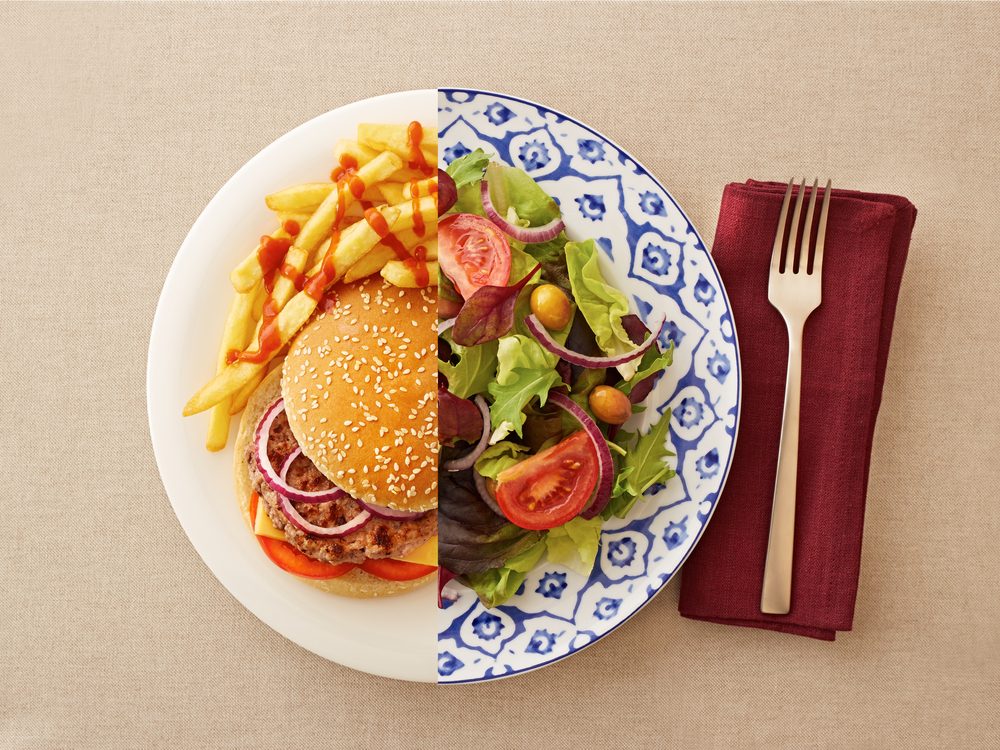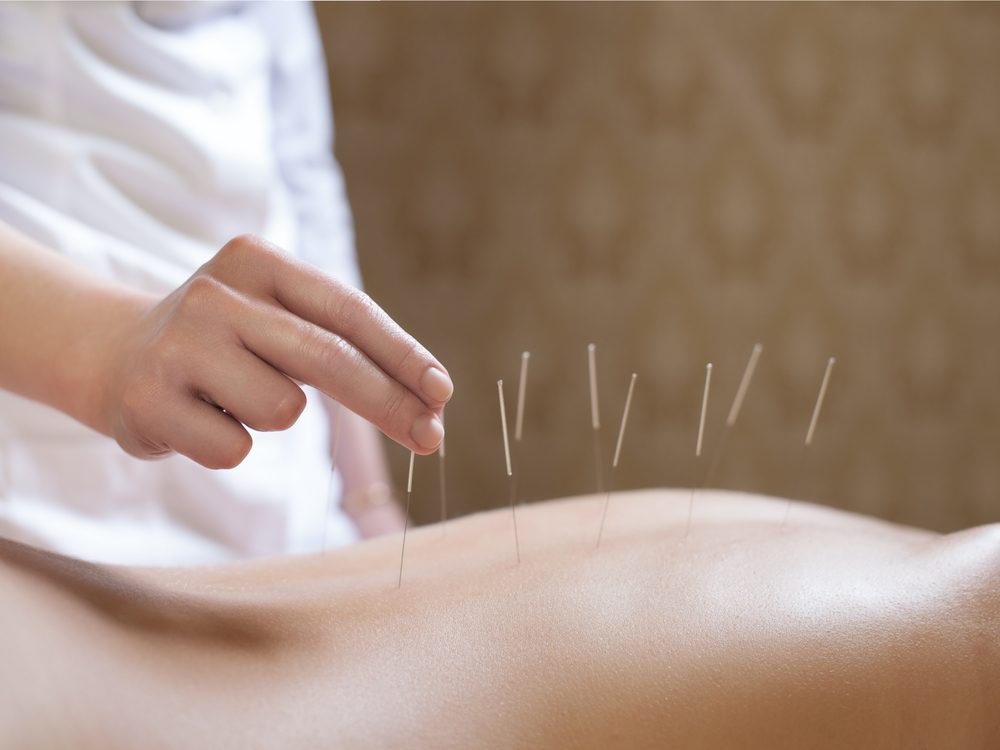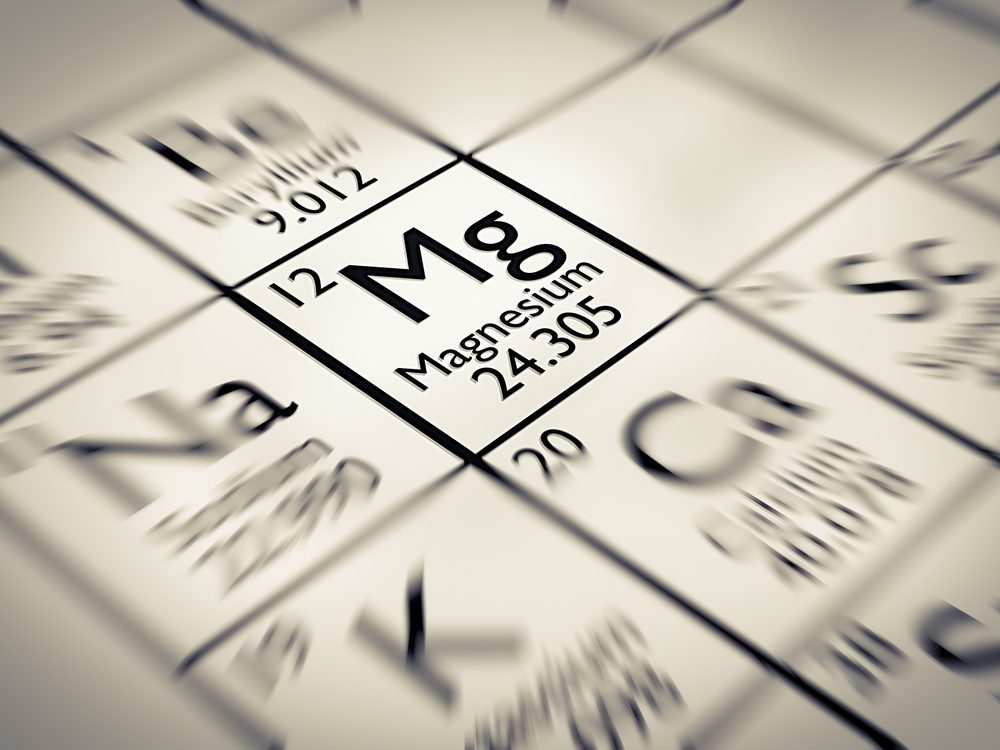
Works for nearly everyone: a very low-fat diet
It is possible to find what helps migraines within your diet. In a study published in the journal of Nutrition, Metabolism, and Cardiovascular Disease, participants followed an extremely low-fat diet (where less than 10-15 per cent of their calories came from fat each day) for 12 weeks. At the end, nearly all reported having at least 40 per cent fewer headaches. When they did experience pain, it was 66 per cent less severe, and the migraines were about 70 per cent shorter. That said, other research and studies also show there might not be as much of a significant difference in migraine relief between low-fat and moderate-fat dieters. Other diets could also potentially work well including low-carb or omega-3-rich diets, per the National Headache Foundation.

Works for most: Vitamin B, feverfew, melatonin, butterbur
Vitamin B2: A Belgian study found that 60 per cent of people who took 400 milligrams of this vitamin everyday had half their usual number of migraines.
Feverfew: This popular herb offers “mild and transient” benefits, according to British researchers, but in a recent study of a feverfew extract containing a consistent level of parthenolide, migraines were reduced from five per month to three. Further research shows there is conflicting evidence on the effectiveness of this herb.
Melatonin: Two-thirds of study participants who took melatonin before going to bed every night for three months said the number of migraines they experienced dropped by 50 per cent.
Butterbur-based remedies: One expert calls these “the best safety-tested herbal to date for the treatment of headache.” According to the journal Neurology, 68 per cent of those who took a butterbur product called Petadolex saw the number of migraines they experienced drop by 50 per cent.
Got a bad case of indigestion? Try these home remedies.

Works for mild migraines: OTC pain relievers
If your attacks don’t keep you from your everyday activities, and you experience vomiting once in every five attacks or less, then inexpensive over-the-counter pills like aspirin, ibuprofen, acetaminophen, and naproxen may act as migraine remedies. What helps migraines? OTC products that contain a blend of acetaminophen, aspirin, and caffeine were found to relieve pain 20 minutes faster than ibuprofen.
Don’t miss these home remedies that can help cure nausea.

Works for severe migraines: prescription drugs
If drugstore painkillers don’t do the trick and you’re wondering how to treat a migraine as soon as it starts, ask your doctor about the gold-standard for headache cures: triptans. These drugs can halt a migraine if taken at the first sign of an attack, and they can even ease the pain when an attack is underway. Over 40 per cent of the time, triptans ease the pain within one hour of taking them, and provide complete relief within two.
These are the surprising things that could be triggering your headaches.

Works for frequent migraines: migraine-prevention drugs
If you get two or more migraines per month, you are a candidate for these. Within four weeks of usage, they can cut your migraine-frequency down. Studies show 90 per cent of people who take beta-blockers propranolol (Inderal) and timolol (Blocadren) get relief. When beta-blockers don’t work, calcium channel-blockers might do the trick.
This woman suffered from benign headaches for years—then a CT scan revealed something deadly.

Works for nearly everyone: fewer painkillers
Migraine remedies don’t automatically mean more painkillers. Although it sounds counter-intuitive, don’t overdo your use of painkillers, or you could end up worse off. Using over-the-counter pain pills more than twice a week or taking migraine-easing triptans more than 17 times a month can eventually cause “rebound” migraines, warn German researchers.
Check out these classic home remedies with surprising new benefits.

Works for some: acupuncture
A review of 22 clinical trials shows there’s evidence acupuncture could be what helps migraines. The research shows headache frequency dropped by 50 per cent or more in up to 59 per cent of individuals receiving acupuncture. Plus, this effect can persist for more than six months.

Don’t bother: magnesium and homeopathy
Need to know what helps migraines? Don’t waste time on either of these supposed migraine remedies. Low brain levels of magnesium have been linked with migraines, but two out of three studies have found that magnesium supplements provide no benefits to the migraine-prone. Similarly, British researchers found no difference in migraine occurrence in study-participants after three months of taking homeopathy medication and three months of taking a placebo.
Next, check out these health studies that will change the way you live.